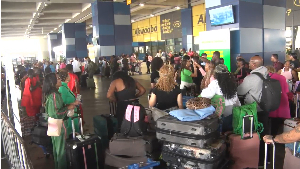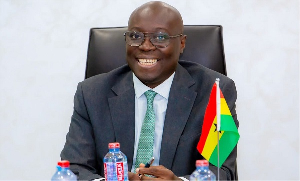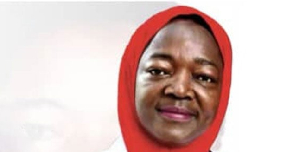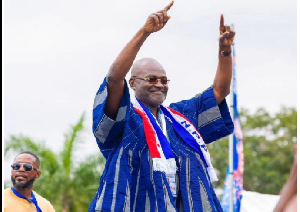Law enforcement agencies in Ghana have been urged to target persons cultivating marijuana, not the end users, if the country really wants to deal with the drug menace.
Yaw Akrasi Sarpong, Executive Director of the Narcotics Control Board has noted that the drug menace is a demand-and-supply business and, so, if there is no supply of marijuana, the end users will not have it on the market to patronise, therefore, arresting and prosecuting the users will not remove the deep-rooted canker from the society.
He explained that: “You are looking for the guys who are cultivating on a big scale because you want to end the supply. If you do not grab those who are supplying and you grab those who are at the retail end, I think you are not being fair to them because, as for them, it is about demand. They have smoked, they need it for recreation, so the people who are growing it are the ones we are dealing with.”
Speaking on TV3’s Hot Issue on Saturday May 21, Mr Akrasi Sarpong revealed that there were mechanisms, too in place, especially in the advanced countries including the United States that are helping in curbing the cultivation of marijuana.
He mentioned community level empowerment as one of the mechanisms being employed by the US government.
“If you want people to stop marijuana, it is not pontificating; it is the demand reducing. There are mechanisms, measures, and programmes to reduce the demand. For example, there is a concept in the US which talks about community level empowerment. You empower the community and we have had people come from the US to train civil society organisations and Narcotics Control Board officials to learn how to empower communities to identify where the farms are, to discourage people from planting and smoking,” he said, adding: “We need to regulate it properly, we need to encourage civil society organisations to get into demand reduction and harm reduction.”
He further revealed that the US government was supporting the law enforcement unit of the Ghana Police Service with $1 million in the fight against organised crime, including the cultivation of marijuana in the country.
“It is in this regard that the US Embassy, as part of Ghana’s National Integrated Programme, which is a five-year programme to fight transnational organised crimes in Ghana, has contributed US$1 million to the drug law enforcement unit of the Ghana Police Service to beef up their capacity, so that we can deal more effectively with marijuana, the cultivation and the trafficking,” he emphasised.
General News of Sunday, 22 May 2016
Source: classfmonline.com
Target ‘wee’ growers, not end users – Sarpong
Entertainment












